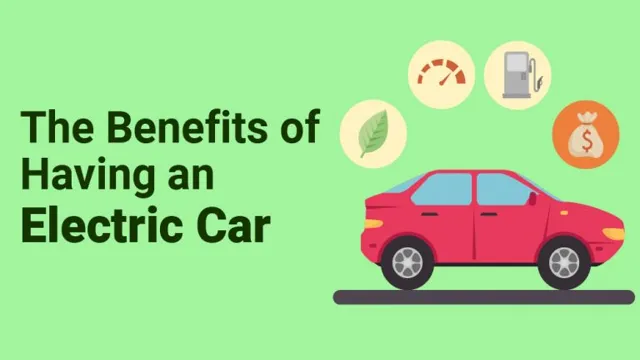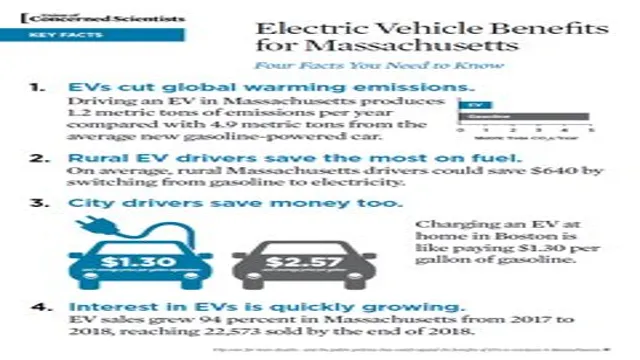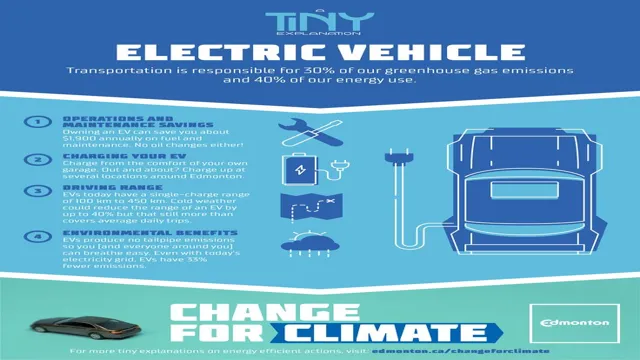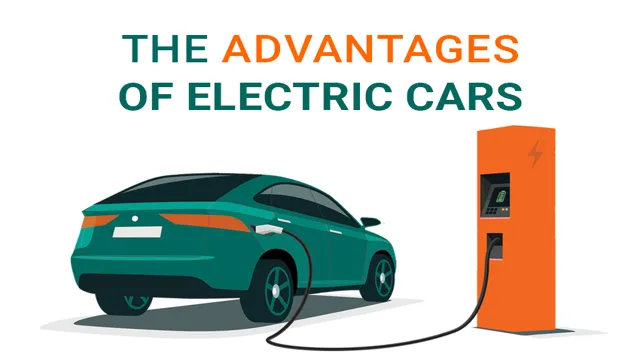Rev up Your Savings: Exploring the Economic Benefits of Electric Cars
Do you want to save money on your monthly expenses? Are you tired of paying high gas prices for your car? If the answer is yes, then you might want to consider getting an electric car. Electric cars have many economic benefits that can help you save money in the long run. One of the biggest advantages of electric cars is that they are cheaper to operate than traditional gas-powered vehicles.
According to a report by the U.S. Department of Energy, electric vehicles cost about half as much to operate as gas-powered cars.
This is because electricity is much cheaper than gasoline, and electric cars are more efficient than gas-powered cars. Electric cars also require less maintenance than gas-powered cars. Since electric cars have fewer moving parts, there are fewer parts that can wear out or break.
This means that the cost of maintenance for an electric car is much lower than for a gas-powered car. Another economic benefit of electric cars is that they are eligible for tax incentives and rebates. In many states, you can get a tax credit or rebate for purchasing an electric car.
This can help offset the cost of buying an electric car and make it more affordable. In addition to these benefits, electric cars also have a higher resale value than gas-powered cars. This is because electric cars have a longer lifespan and are in greater demand than gas-powered cars.
This means that if you decide to sell your electric car in the future, you can expect to get a higher price for it than you would for a gas-powered car. In summary, electric cars offer many economic benefits that can help you save money in the long run. They are cheaper to operate, require less maintenance, and are eligible for tax incentives and rebates.
Lower Fuel and Maintenance Costs
One major benefit of owning an electric car is the lower fuel and maintenance costs. With an electric car, you don’t have to pay for gasoline, which can be a significant expense for traditional cars that require constant refills. Instead, you’ll be charging your car’s batteries, which is typically cheaper than buying gas.
Plus, electric cars usually have fewer moving parts, which means there are fewer maintenance requirements. You won’t have to worry about oil changes, transmission repairs, or other costly repairs that come with traditional cars. Overall, owning an electric car can save you a lot of money in the long run, making it a smart economic choice for eco-conscious drivers.
Electricity is Cheaper than Gasoline
Electricity is a much cheaper fuel than gasoline, and electric vehicles are rapidly gaining popularity due to their lower fuel and maintenance costs. In addition to reducing greenhouse gas emissions, electric cars can save you tons of money in the long run. While gasoline prices are at the mercy of global demand and politics, electricity prices are relatively stable and can be controlled by the consumer.
In fact, the cost of charging an electric vehicle is approximately 50-60% cheaper than fueling up a gas-powered car. Moreover, electric cars require less maintenance than conventional vehicles as they have fewer moving parts and don’t require regular oil changes. All of these factors make electric vehicles an affordable choice for drivers who want to save money while reducing their carbon footprint.
So, if you’re looking for a vehicle that offers lower fuel and maintenance costs, consider switching to an electric car.

Fewer Moving Parts Means Fewer Repairs
When it comes to lowering fuel and maintenance costs, one of the most significant factors is the number of moving parts in a machine. The more moving parts, the greater the likelihood of repair needs. This is especially true for complex machinery like cars and industrial equipment.
By using machinery with fewer moving parts, owners can significantly reduce the likelihood of unexpected maintenance needs and associated repair costs. This can also lead to lower fuel costs, as greater complexity usually means greater energy usage. By simplifying machinery and reducing the number of moving parts, owners can enjoy a streamlined, efficient system that saves them money in the long term.
It’s a little bit like the difference between a Swiss watch and a digital watch. While both may serve the same function, the Swiss watch has many more delicate moving parts that can break, whereas the digital watch has few, if any, parts that might fail. By choosing simpler machinery, owners can avoid the complications and associated costs of complex, multi-part machines, and keep their equipment running smoothly for longer.
Tax Incentives and Rebates
One of the major economic benefits of electric cars that many people overlook is the tax incentives and rebates. Many governments around the world, especially in developed countries, offer various forms of financial aid to incentivize the purchase and use of electric cars. In the US, for example, the federal government offers a tax credit of up to $7,500 for individuals buying new electric cars.
Additional incentives are also available at the state level. These incentives can significantly reduce the cost of purchasing an electric car and make them more attractive to consumers. Moreover, some municipalities also offer free parking and toll fee exemptions for electric cars, further adding to the economic benefits of using these vehicles.
Overall, if you are looking to save money and contribute to a cleaner environment, then electric cars are an excellent choice that offers countless economic benefits.
Federal and State Tax Credits
Tax incentives and rebates are available both at the federal and state levels to stimulate investment in energy-efficient measures. These programs offer financial incentives, such as tax credits, to support homeowners and businesses in their efforts to adopt renewable energy sources and promote sustainability. Federal tax credits apply to solar, wind, geothermal, and fuel cells, among other technologies, while state rebates vary by location.
Some states, such as California and New York, offer a comprehensive range of incentives, including property tax exemptions, sales tax exemptions, and low-interest loans. Other states may have incentives for specific technologies, such as wind turbines or electric vehicles. If you’re interested in investing in renewable energy, it’s essential to research the incentives and requirements in your area to ensure you maximize your savings.
The availability of tax incentives and rebates is a welcome relief, making sustainable energy even more accessible to the average person.
Additional Incentives from Local Utilities
One of the benefits of installing solar panels is the tax incentives and rebates offered by local utilities. As solar energy gains popularity, more and more utility companies are offering incentives to make it more accessible to consumers. These incentives often come in the form of tax credits or rebates on the cost of installation, making it more affordable for homeowners or businesses.
Some utilities even offer net metering, which allows you to earn credits for excess energy you produce and feed back into the grid. These incentives can not only save you money, but also make your solar panel investment more profitable in the long run. So, before you decide to go solar, make sure to check with your local utilities for any additional incentives they may provide to help you maximize your savings.
Increased Resale Value
One of the biggest economic benefits of owning an electric car is the increased resale value. Unlike traditional gasoline-powered cars, electric cars have a longer life span and typically require fewer maintenance and repair costs, which can lead to a higher resale value. Additionally, as more people become environmentally conscious and opt for electric cars, the demand for them will likely increase, driving up their value even further.
Choosing to purchase an electric car not only benefits the environment, but it can also be a smart financial decision in the long run. Plus, with electric cars being more energy-efficient than their gas-powered counterparts, you’ll save money on fuel costs as well. So why not consider making the switch to an electric car and enjoy the benefits both for the environment and your wallet?
Electric Cars Retain Value Better than Gas Cars
Electric cars have been proving to have a greater resale value than their gas-powered counterparts. This is due to several factors that have contributed to increasing their value in the market. One of the primary reasons for their increased resale value is the durability of their batteries, which can last for many years beyond their warranty period.
Due to the limited production and high demand of electric cars, they tend to retain their value better than gas-powered cars. Additionally, electric car owners tend to take better care of their vehicles, resulting in fewer maintenance issues and a better overall appearance when it comes time to sell. All of these factors considered together mean that electric cars have a higher market value and higher resale value, making them a smart investment for anyone looking to buy a car that retains its value over time.
Lower Environmental Impact
Electric cars are becoming increasingly popular for their economic benefits, but perhaps the most significant advantage of these vehicles is their lower environmental impact. As we move towards a more sustainable future, reducing carbon emissions to combat climate change is essential. Electric cars produce less CO2 than gasoline-powered vehicles and are much more energy-efficient.
They don’t emit any harmful pollutants, which means cleaner air for us to breathe. Additionally, electric cars reduce our reliance on fossil fuels, which not only helps the environment but enhances national security. With government incentives, lower costs of maintenance, and the growing infrastructure of charging stations, it’s no wonder that more people are choosing to switch to electric cars.
If you’re looking for a vehicle that not only saves money but also benefits the environment, an electric car could be the answer.
Reduced Carbon Emissions from No Tailpipe Exhaust
No tailpipe exhaust technology is a game-changer for reducing carbon emissions and lowering environmental impact. In traditional cars, the exhaust pipe releases harmful pollutants, contributing to air pollution and climate change. However, with no tailpipe emissions, electric and fuel cell vehicles offer a cleaner and greener driving experience.
Not only do they produce fewer pollutants, but they also emit less carbon dioxide, which is a significant greenhouse gas. By transitioning to electric or fuel cell vehicles, we can reduce our carbon footprint and help protect the environment. Imagine driving a car that doesn’t harm the environment or contribute to climate change.
It’s a win-win for both drivers and the planet.
Reduced Dependence on Foreign Oil
Reduced dependence on foreign oil doesn’t just mean better energy security, it also means a lower environmental impact. When a country reduces its reliance on foreign oil, it often turns to alternative energy sources such as wind, solar, and hydro. These sources have a much lower environmental impact than fossil fuels.
For example, solar energy produces no emissions and wind energy produces far less CO2 emissions than coal or oil. By transitioning to cleaner energy sources, we can dramatically decrease our carbon footprint and reduce the damage done to the environment. Additionally, the production and transportation of oil often involves the destruction of habitats and ecosystems, but with reduced dependence on foreign oil, we can minimize this harm and protect our natural world.
Conclusion: Why Investing in an Electric Car Makes Economic Sense
In conclusion, owning an electric car is not only beneficial for the environment, but it also has many economic benefits. Not only do electric cars save you money on fuel costs, but their maintenance costs are also significantly lower than traditional gasoline cars. Plus, with government incentives and tax credits, owning an electric car can even save you money on your initial purchase.
So, switch to an electric car and watch your savings charge up!”
FAQs
What are the economic benefits of owning an electric car?
Owning an electric car can result in significant savings on fuel costs, as electricity is typically cheaper than gasoline or diesel. In addition, electric cars require less maintenance and repairs, leading to lower overall ownership costs. Finally, some governments offer tax credits or other incentives for purchasing electric cars, further reducing the cost of ownership.
Are electric cars more expensive to purchase than traditional gas-powered cars?
Yes, electric cars are often more expensive upfront than traditional gas-powered cars. However, as mentioned earlier, their lower operating and maintenance costs can result in savings over the vehicle’s lifetime. In addition, some government incentives and tax credits can help offset the initial purchase price.
Do electric cars have a shorter range than gas-powered cars?
In the past, electric cars had a shorter range than gas-powered cars. However, advances in battery technology have enabled electric cars to have ranges that are more comparable to traditional cars. Some electric cars can travel over 300 miles on a single charge.
Can electric cars be charged from a regular wall outlet at home?
Yes, some electric cars can be charged using a standard 120-volt wall outlet. However, this charging method is slower than using a dedicated charging station. A dedicated charging station can charge an electric car more quickly and efficiently.




